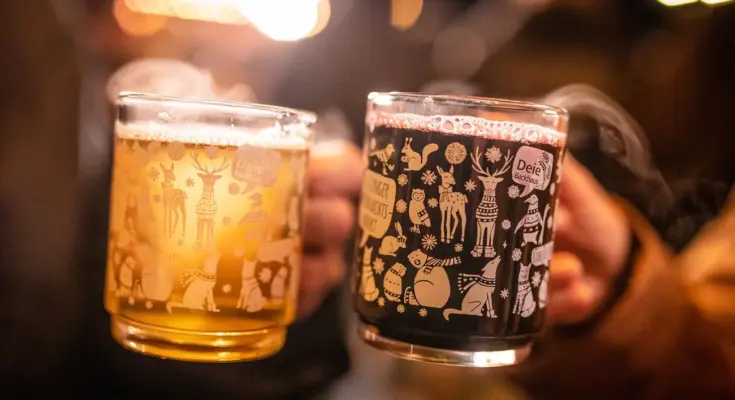If winter As the first frost approaches, cold wisdom spreads: wet hair can make you sick or a cold shower can protect you from a cold. Fact check:
Myth: Wet hair in cold weather makes you sick
Wrong. This is a classic winter myth and has long been scientifically debunked. Colds are not only caused by cold or wet hair in cold temperatures, but are always caused by viruses. There is no infection without contact with the pathogen. However, research shows that excessive cooling of body surfaces – for example through wet clothing or cold air – can reduce blood flow to the mucous membranes. This can weaken local defenses and allow existing viruses to reproduce more easily. So keeping warm can sometimes help. But: A cold always needs a pathogen.
Myth: Cold showers prevent disease
Unclear. The idea sounds tempting, but is difficult to prove scientifically. A Dutch study involving about 3,000 participants showed that people who took cold showers for 30 to 90 seconds a day felt fitter and subjectively reported fewer sick days, but objectively they were also just as likely to take sick leave.
Cold showers can stimulate circulation and improve circulation in the short term, but there is no evidence of protection against colds. Expert advice: If you still want to try it, it’s best to start slowly – for example with alternating showers, which cool the body one step at a time.
Myth: Women freeze faster than men
Correct. This popular saying turns out to be true. Women feel colder – for biological reasons. Man have more muscle mass and therefore burn more energy, which produces heat. On the other hand, women usually have a higher fat percentage. In addition, there are hormonal fluctuations that affect temperature perception.
Studies show: Women find temperatures around 24 degrees Celsius pleasant, while men feel comfortable at 22 degrees. The difference is measurable – and not just your imagination.
Myth: Alcohol warms the body from the inside
Wrong. Grapes or schnapps may give the illusion of warmth for a short time – but cool the body. Because alcohol dilates blood vessels in the skin, warm blood flows to the surface: the consumer feels comfortable. But according to the Federal Institute for Public Health (BIÖG), this effect is deceptive: heat is released more quickly into the environment and, as a result, the body’s internal temperature drops. Alcohol can interfere with the body’s natural thermoregulation.
The recommendation is therefore: avoid alcohol cold if possible – and warm up through exercise or warm drinks without alcohol.
Myth: Blood pressure is higher in cold weather
Correct. Blood pressure levels change throughout the day. It increases sharply when you wake up and continues to increase as the morning progresses. Various factors such as gender, age, lifestyle and environment influence blood pressure. This includes temperature differences: “In winter, temperatures are higher than in summer because blood vessels narrow due to cold temperatures, causing an increase in blood pressure,” says the Health Knowledge Foundation.
Persistent high blood pressure can cause serious damage to the brain, heart and kidneys over a long period of time, according to the Heart Center at Charité. One speaks of high blood pressure when the values are permanently above 140:90.
© dpa-infocom, dpa:251122-930-325503/1



